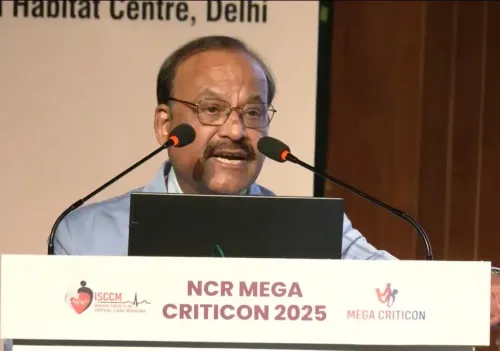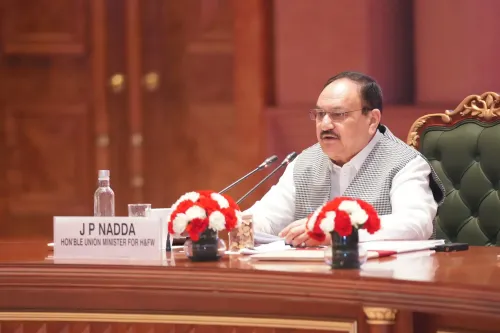What is the Union Cabinet’s Approval for Phase III of the Biomedical Research Career Programme?

Synopsis
Key Takeaways
- Phase III of BRCP approved with a budget of Rs 3,000 crore.
- Collaboration between DBT, Wellcome Trust, and India Alliance.
- Focus on skill enhancement and interdisciplinary research.
- Aims to train over 2,000 scientists and produce high-impact research.
- Strengthening mentorship and international partnerships.
New Delhi, Oct 1 (NationPress) The Union Cabinet, led by Prime Minister Narendra Modi, has granted approval for Phase III of the Biomedical Research Career Programme (BRCP) with a financial commitment of Rs 3,000 crore over six years.
Scheduled to commence from 2025-26 to 2030-31, this initiative is a collaborative effort between the Department of Biotechnology (DBT), the Wellcome Trust (WT) in the UK, and the India Alliance.
As stated in a Cabinet Communique, fellowships and grants have been sanctioned until 2030-31, with a cumulative cost of Rs 1,500 crore. This includes contributions of Rs 1,000 crore from DBT and Rs 500 crore from WT, UK.
This programme aligns with the Viksit Bharat vision, focusing on skill enhancement and innovation, while also nurturing top-tier scientific talent for pioneering biomedical research, and encouraging interdisciplinary research for transformative innovation.
Additionally, it aims to fortify systems that support high-quality research and diminish regional disparities in scientific capabilities to establish a world-class biomedical research framework with a global footprint.
The Cabinet commenced Phase I of this initiative in 2008-2009, which provided research fellowships for biomedical research at global standards. Phase II followed in 2018/19 with an expanded scope.
According to the Communique, Phases I and II established India as a budding hub for internationally recognized biomedical science. With India’s increasing investment in scientific research and its evolving role in the global knowledge economy, a new phase of strategic investment is essential. Building upon the successes of previous phases, Phase III will channel investments into talent, capacity, and translation aligned with national priorities and international standards.
Phase III will roll out programs like early career and intermediate research fellowships in basic, clinical, and public health domains. These are globally acknowledged and specifically designed for the critical phases of a scientist's career.
It will also feature a collaborative grants program that includes career development grants and catalytic collaborative grants for teams of early and mid-senior career researchers, respectively, who possess a robust research track record in India.
Research management programs will be introduced to bolster core research initiatives.
Furthermore, Phase III will emphasize enhancing mentorship, networking, public engagement, and forming new innovative partnerships at both national and international levels.
The combination of research fellowships, collaborative grants, and the research management program, implemented across India, will propel scientific excellence, skill development, collaboration, and knowledge transfer.
As highlighted in the Communique, expected outcomes include training over 2,000 students and postdoctoral fellows, producing high-impact publications, facilitating patentable discoveries, gaining peer recognition, increasing support for women by 10-15%, and achieving that 25-30% of collaborative programs reach TRL4 and higher while expanding activities in Tier-2/3 regions.









